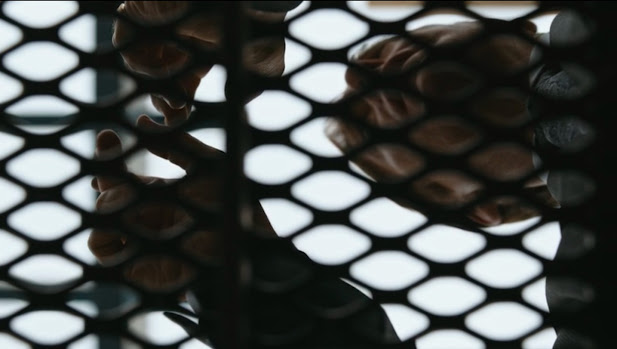About twenty years ago now I had this crazy idea that I wanted to be a screenwriter. Actually, no, that's not right. About twenty years ago I was working as a high school English teacher at Red Cloud Indian School on the Pine Ridge Indian Reservation. I had all the seniors; They rode me like the practice pony at a rodeo that first year. It was brutal and I ended up loving them for it.
Meanwhile back in the suburbs of Chicago where I was from white people whose closest experiences with Native people was watching DANCES WITH WOLVES, Wasn't Kevin Costner amazing?--would tell me about how Native people rode horses and lived in tipis and had such terrible problems holding their liquor.
I ended up trying to write a screenplay to share what I was witnessing, hilarious, incredible kids who refused to give respect that wasn't earned and fought like Hell for the things they believed in. It was a little bit the story of the prodigal son and a little bit Agamemnon, and also a total disaster because I had no idea what I was doing.
Still, I loved not only that it gave me a chance to light a candle at the feet of every student I had but how it allowed me to think about what I had seen working on the rez. The writing process was filled with surprise and discovery.
And so a little while later, I went to UCLA and did an MFA in Screenwriting. It was a fantastic experience; new scripts due every ten weeks and being a part of a community of really decent human beings who gave great notes and tried to help each other, and faculty who kept pushing us to see ourselves as artists. To be able to say, I am a writer.(I still have trouble saying that. Please look away while I stop squirming.)
While I've yet to set the world on fire--I sold a pilot, worked on a show, but otherwise still chasing the dream--if anything I love the experience of writing even more than I did before. Those moments where suddenly you see new possibilities in a character or relationship, a throwaway line you didn't even think through when you put it down that now gives you the key to everything leave me with "My God, it's full of stars"-levels of wonder. If you're reading this I bet you've had experiences like that too. The other thing I've come to love is watching how someone else tells a great story. For me, every TV show, movie, comic, book, even the occasional tweet is a chance to get to watch a magician do their thing. I want to be entertained, sure, but honestly what gets me excited is trying to learn how they do their tricks.
During the seemingly-endless nightmare weekend that has been this #!%!%ing pandemic, I've watched a ton of TV shows and movies. And at some point I found myself finishing episodes thinking, What new trick did I see here? Or what disaster? (Sometimes I learn way more from trying to understand why something didn't work than what did.)
I started writing about what I saw, sometimes just a couple paragraphs, sometimes full blown beat sheets for everything from older scifi like BABYLON 5 and FRINGE to recent shows like HALT AND CATCH FIRE, THE MANDALORIAN, PARKS & RECREATION or likely Oscar-nominee movies.
Pretty quickly my writing started to take the format of Me writing to other people interested in story, i.e. "Here's a cool thing for your toolbox."
I kept saying I was going to turn this into a blog. I even bought a site on WordPress after I watched a video that made that seem super easy, which was crazy, my website looked like it was made for a shady real estate agency.
Meanwhile my set of posts kept growing until I just decided it, screw it, I'll get started on what is at this point basically the AMC Gremlin of blog sites, and see what happens. I can type stuff and you can see it. For now, hopefully that'll be enough.
I really do love a Gremlin.
My hope is to post something every week day about a TV episode
or movie, one lesson or tool I found in something I watched. Hopefully once I'm humming I'll start adding in comic books
and some other stuff too. (I've written so many notes on Stephen King
books, you guys.)
Honestly I don't know if there's an audience for any of this, or if I'll just be writing it for myself. I hope it's the former, but if it proves to be a message in a bottle that never gets found, or at least not until the aliens from Sigma-7 come to visit the ruins of our planet, so be it. Maybe it'll mean more then.
To anyone who does find this, whether you dream of being a writer, or you're already fighting the good fight, I say Hello, Friend. Thank you for the beautiful things you put out into the world. Even if they only live in your hard drive for now (or for always), they change you and that makes the world better.
Wanna see a magic trick? Check back tomorrow. I've got some cool ones to show you.
++
THIS WEEK: Lessons in Opening an Episode from some of this year's WGA-nominated TV scripts, including BOJACK HORSEMAN, BETTER CALL SAUL, RAISED BY WOLVES and others.
COMING SOON: WANDAVISION! WGA-nominated features! So! Much! More!
NOW: The moment from "I, Carumbus," the WGA-nominated SIMPSONS script written by Cesar Mazariegos, that I can't stop watching.






















